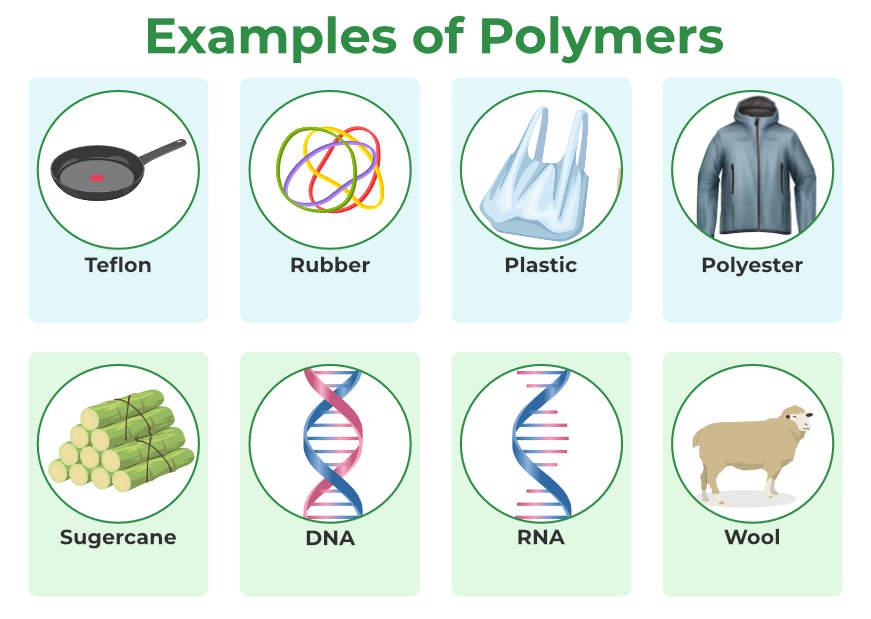Polymers in Building And Construction: Stronger, Lighter, and A Lot More Durable
Polymers in Building And Construction: Stronger, Lighter, and A Lot More Durable
Blog Article
Harnessing the Power of Polymers: Comprehending the Comprehensive Usages and Favorable Effects
Polymers, with their diverse chemical frameworks and buildings, have ended up being crucial in various markets, transforming the way we interact with materials every day. From the product packaging that safeguards our food to the fibers that clothe us, the applications of polymers are substantial and differed. Past their ubiquitous presence exists a much deeper understanding of their favorable influences, reaching much beyond plain benefit. As we discover the comprehensive usages of polymers and their role in shaping a more sustainable, efficient, and innovative future, it becomes apparent that their capacity is as substantial as the molecules themselves.
Flexibility in Everyday Products
Polymers exhibit exceptional flexibility in a vast array of everyday items, showing their vital function in modern society. From the versatile plastic case of smart devices to the sturdy fibers in clothes, polymers have transformed the way we communicate with products in our day-to-days live. One of the most typical uses of polymers is in product packaging products. Polyethylene, as an example, is commonly utilized in food packaging due to its light-weight, durable, and moisture-resistant homes. In addition, polymers play a critical role in the auto industry, where they are used in making lightweight parts that boost gas efficiency.
Furthermore, polymers have located their method right into the healthcare field, with applications varying from medical devices to drug shipment systems. Biodegradable polymers are made use of in stitches and implants, lowering the risk of negative reactions in individuals. In the building and construction market, polymers are integrated right into paints, adhesives, and insulation products, improving longevity and energy effectiveness. Overall, the adaptability of polymers in day-to-day products underscores their importance in driving innovation and improving lifestyle.
Sustainability in Product Innovations
With the ongoing emphasis on ecological awareness and resource performance, the focus moves in the direction of sustainability in product developments, mirroring an expanding commitment to accountable production practices throughout different industries. In recent years, there has been a significant surge in the development of lasting materials, especially within the realm of polymers. These innovative products are created to minimize environmental impact throughout their whole lifecycle-- from sourcing resources to disposal or recycling.
One significant facet of sustainability in product advancements is the idea of biodegradability. Naturally degradable polymers have amassed More about the author interest for their capability to damage down naturally into safe results, minimizing waste and air pollution. Additionally, using recycled polymers originated from post-consumer or post-industrial resources is obtaining traction as a way of promoting a circular economic situation and lowering dependency on virgin products.

Enhancing Efficiency in Design
Enhancing efficiency in design calls for a precise combination of advanced modern technologies and specific methods to enhance capability and effectiveness in numerous industrial applications. Polymers play a vital duty in this undertaking, using a vast variety of advantages that boost the efficiency of design materials and components.
One secret facet of improving performance in engineering is the capacity of polymers to boost toughness and stamina. By integrating polymers into design designs, manufacturers can create light-weight yet robust frameworks that can hold up against high levels of stress and stress. This characteristic is specifically important in industries such as aerospace, auto, and building, where the demand for solid yet light-weight materials is extremely important.
Additionally, polymers can additionally improve efficiency by giving thermal and chemical resistance, minimizing rubbing, and enhancing electric conductivity. These buildings make polymers excellent for a vast array of engineering applications, consisting of seals, bearings, coatings, and digital elements. Polymers. By using the one-of-a-kind homes of polymers, designers can maximize the efficiency of their designs and develop a lot more effective and reliable items
Influence on Medical Innovations
Polymers have actually played an essential function in modern clinical improvements, varying from medicine delivery systems to tissue design. One of the vital areas where polymers have actually made a considerable effect is in the advancement of naturally degradable sutures and implants.
In addition, polymer-based products are increasingly being made use of in clinical devices such as catheters, stents, and prosthetics due to their biocompatibility and flexibility. For instance, polymer finishings on clinical my response devices can avoid infections and improve total patient outcomes. Additionally, innovations in nanomedicine have actually enabled the use of polymer nanoparticles for targeted drug delivery, boosting the effectiveness and reducing more negative effects of numerous medicines
Function in Environmental Preservation

In addition, polymers are utilized in water therapy procedures, aiding in the purification and recycling of water sources. This aids in reducing water air pollution and making sure accessibility to tidy water for both human intake and ecological wellness. Polymers additionally play a function in farming via the advancement of biodegradable mulches and controlled-release plant foods, promoting lasting farming techniques.
Verdict
Finally, polymers have proven to be a versatile and important product in different industries, from everyday products to engineering and clinical developments. Their influence on sustainability, efficiency improvement, and ecological preservation is significant. Understanding the considerable uses polymers underscores their relevance in driving development and progress in numerous areas. The continued expedition and utilization of polymers will definitely cause more improvements and favorable effect on culture.
Report this page